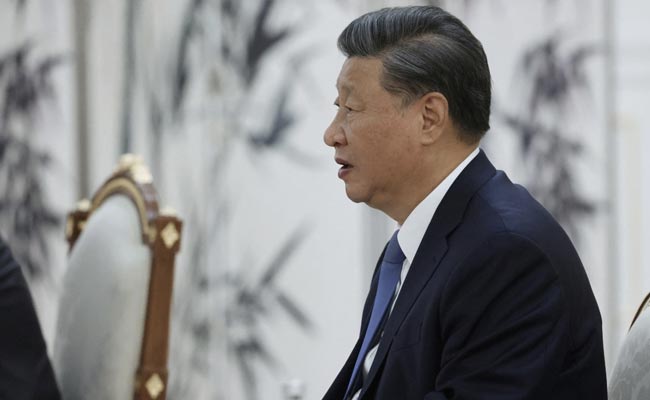Chinese leader Xi Jinping on Sunday delivered a nearly two-hour speech to open the Communist Party’s National Congress, the country’s top leadership event.
The 69-year-old’s sweeping remarks touched on everything from opposition to Taiwan’s independence and building up China’s military to Beijing’s virus policies and the shaky state of the world’s No. 2 economy. China’s “common prosperity” strategy to reduce inequality also featured prominently.
Analysts and China experts say Xi’s comments highlighted Beijing’s bid to strengthen the domestic economy as the global outlook sours, and to put security at the top of the agenda amid soaring geopolitical tensions, including icy relations with Washington.
Here is how some analysts view Xi’s speech:
LIU JUNDAI, POLITICAL SOCIOLOGIST, UNIVERSITY OF MICHIGAN
“Xi’s speech tried to project a firm stance with a somber tone. Unlike the 19th Party Congress (in 2017), this speech (emphasized the) greater difficulties and uncertainties that have come out of the past five years… China’s major diplomatic projects, mainly backed by its economic might, will face a conundrum of having to choose between austere domestic costs or diminished overseas influence.”
DAN MACKLIN, SHANGHAI-BASED POLITICAL ANALYST
“A major difference this time is that the report celebrated not just the previous five years but the entire decade since Xi took power. This reinforces Xi’s image as the savior of a party that was in crisis, and who is now the only person able to lead it going forward. Another major difference with 2017 is the greater emphasis on security and struggles. Xi spoke much less about dreams and more about potential dangers ahead.”
“The initial signs are that the party is preparing for more challenges on both economic and diplomatic fronts… We should expect that politics and security will continue to be prioritized over economic growth. ‘Common prosperity’ policies will start to take shape and may require Chinese people to accept more frugal lifestyles. Xi will also further pursue the ‘dual circulation’ concept of expanding domestic demand while still benefiting from the global economy. In foreign policy, Beijing will not pursue isolationism but will continue to seek alternatives to perceived U.S.-led hegemony.”
JING LIU AND ERIN XIN, GREATER CHINA ECONOMISTS, HSBC
“Xi emphasized that China would continue to move towards ‘a modern socialist country in an all-round way,’ where economic growth remains the key foundation. This puts an increased emphasis on high quality economic development through growth drivers like technology innovation and green development… The economy is undergoing a transition from construction-heavy property and traditional infrastructure towards these new growth drivers.”
“This year, the rising geopolitical tension and subsequent energy crisis in Europe and beyond may have made it clearer that energy security takes priority.”

CITI RESEARCH
“Looking at past congresses, the economic policy uncertainty index typically moderated post the event barring external shocks such as the global financial crisis and U.S.-China trade conflicts… Security is elevated to the highest level ever.”
As a sign of China becoming more pragmatic, Citi highlighted Xi’s acknowledgment that coal will remain a key energy supplier despite the country’s zero-carbon ambition, while the absence of the term “housing is for living, not for speculation” may reflect a broader response to a crisis in the real-estate market.
“Its absence from the speech could already suggest a twist on the policy stance amid the prolonged property downturn.”
NOMURA
“Xi emphasized ‘modernization,’ ‘security’ and ‘people’ while mentioning ‘reform,’ ‘economy,’ ‘market’ and ‘innovation’ fewer times compared with a similar speech delivered five years ago, pointing to a shift in the party’s mandate.”
GOLDMAN SACHS
“Our textual analysis suggests the adjusted frequency of ‘security,’ ‘people,’ ‘socialism,’ ‘modernization,’ and ‘military’ this time increased versus five years ago, that of ‘growth’ and ‘law-based governance’ remained largely stable, while that of ‘economy,’ ‘market’ and ‘reform’ declined somewhat.”
HAO HONG, CHIEF ECONOMIST, GROW INVESTMENT GROUP
Xi’s “most frequently used words were ‘people,’ ‘development,’ ‘safety,’ ‘struggle,’ which were used a lot more than 19th Congress. But almost no mention about ‘market.’
Additional reporting by Echo Wong

